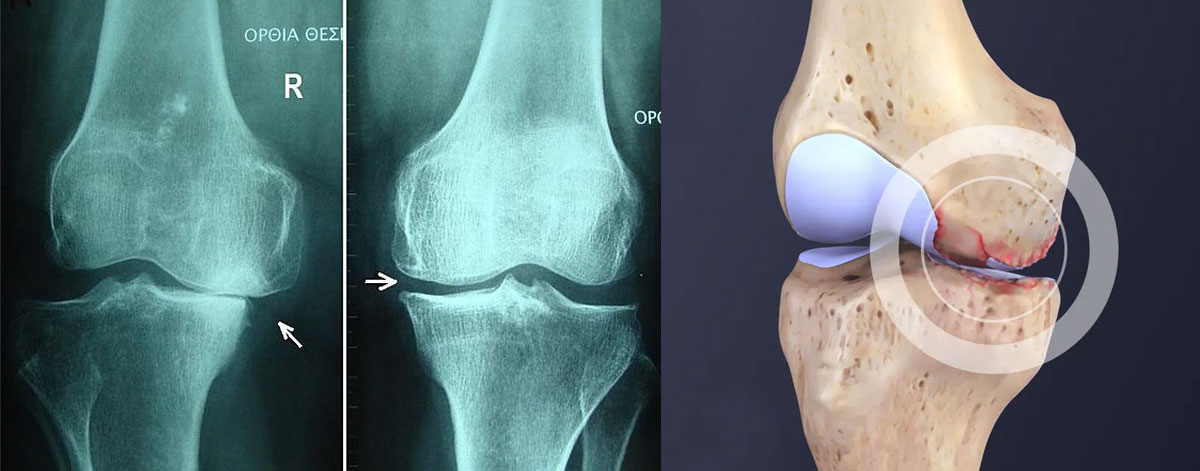Knee Osteoarthritis
Knee osteoarthritis (OA) is a degenerative joint disease that primarily affects the knee joints. It is the most common form of arthritis and is characterized by the gradual breakdown of the cartilage that covers the ends of bones in the knee joint. This breakdown leads to pain, inflammation, and a decreased range of motion in the affected joint.
Here are some key points about knee osteoarthritis:
- Cartilage Degeneration: The cartilage in the knee joint normally acts as a cushion and helps with smooth movement. In osteoarthritis, this cartilage begins to wear away over time due to factors like aging, genetics, excessive weight, joint injuries, and overuse.
- Symptoms: The primary symptoms of knee osteoarthritis include pain, stiffness, and swelling in the knee joint. The pain is often worse during or after activities that involve bending the knee, such as walking, climbing stairs, or getting up from a seated position. As the condition progresses, pain may become more constant.
Do's for Knee Osteoarthritis
- Maintain a Healthy Weight: Excess body weight puts extra stress on the knee joints, which can worsen osteoarthritis symptoms. Aim to maintain a healthy weight through a balanced diet and regular exercise.
- Stay Active: Engage in low-impact exercises like swimming, walking, and cycling to keep your joints moving and maintain muscle strength. Consult with a healthcare professional or physical therapist to determine appropriate exercises for your condition.
- Exercise Regularly: Strengthening the muscles around the knee joint can provide support and stability. Incorporate exercises that target the quadriceps, hamstrings, and calf muscles.
- Use Assistive Devices: Consider using assistive devices such as braces, crutches, or canes to relieve pressure on the affected knee and improve mobility.
- Practice Good Posture: Maintain proper body alignment and posture to reduce strain on your knees. Avoid prolonged periods of sitting or standing in positions that stress the joint.
Don'ts for Knee Osteoarthritis
- Avoid Prolonged Inactivity: While rest is important during flare-ups, prolonged inactivity can lead to muscle weakening and stiffness. Find a balance between rest and gentle movement.
- Don't Overexert Yourself: Avoid high-impact activities like running and jumping, as they can increase the stress on your knee joints.
- Limit High-Impact Exercises: Activities like tennis, basketball, and jogging can place excessive strain on your knees. Opt for low-impact alternatives that provide cardiovascular benefits without exacerbating pain.
- Don't Ignore Pain: Pay attention to your body and avoid pushing through excessive pain. Pain is often a signal that you need to modify your activity level or technique.
- Avoid Excessive Flexion and Rotation: Movements that involve deep knee bending or twisting can strain the joint and worsen pain. Be cautious when performing such movements.

